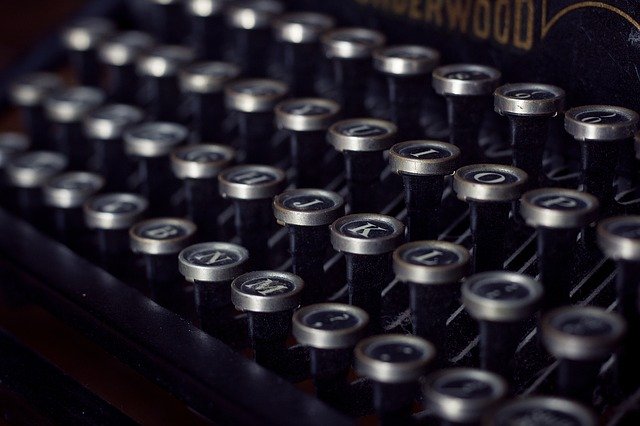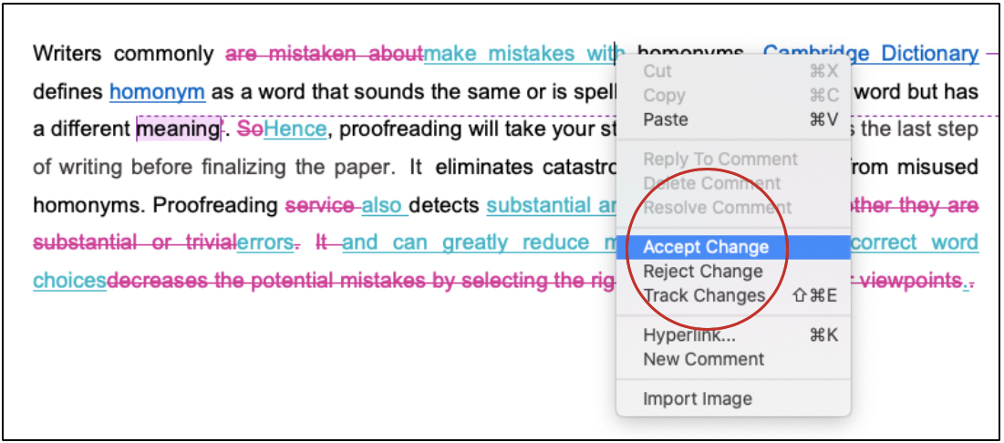Writing for academic purposes entails writing literature that is formal in tone, objective, structure-wise complex and contains a fair amount of academic jargon. As such, there are certain words and phrases, collectively called taboo words, that academic writers omit when writing manuscripts. Academic writing encourages their elimination to maintain the “formality” of academic documents. This article discusses the definition of taboo words to avoid and examine their use cases.

Writing for academic purposes entails writing literature that is formal in tone, objective, structure-wise complex, and contains a fair amount of academic jargon. As such, there are certain words and phrases, collectively called taboo words, that academic writers omit when writing manuscripts. Although people use these words and phrases in everyday conversations and informal writing sans any apprehension, academic writing encourages their elimination to maintain the “formality” of academic documents.
This article will shed light on the definition of taboo words to avoid and examine their use cases. In addition, it will suggest alternatives to aid writers in writing better academic texts.
As per the definition in Merriam Webster dictionary, a taboo is anything that is “forbidden on the grounds of social customs, taste, religious beliefs, or other such categories.” Hence, in the context of academic writing, taboo words are considered words and phrases whose usage is frowned upon in academic texts.
As to why these taboo words are considered “taboo,” several reasons can be attributed to them. But prominently, it is because they lend a sense of vagueness and uncertainty to academic texts. Consequently, such texts appear less precise and straightforward, leaning more toward the “informal” side and this is against the very ethos of academic writing.
The table below shows some taboo words grouped according to the nature of their perception. However, it should be noted that this compilation is not exhaustive.
|
Word(s) |
Instance |
Aliter |
|
Thing |
Several things will go into this experiment. |
Several chemicals/hours will go into this experiment. |
|
Stuff |
Some stuff came out of the test tube. |
A yellowish powder came out of the test tube. |
|
A while |
Scientists have been exploring deep space for a while. |
Scientists have been exploring deep space for over 70 years. |
|
A great deal of |
Evolution takes a great deal of time. |
Evolution takes millions of years. |
|
Word(s) |
Instance |
Aliter |
|
Speed up |
Particle accelerators speed up elementary particles. |
Particle accelerators accelerate elementary particles. |
|
Call off |
The doctors called off the operation. |
The doctors canceled the operation. |
|
Sort of, kind of |
These elements are sort of less abundant on the surface. |
These elements are comparatively less abundant on the surface. |
|
Ain’t, can’t, isn’t, and similar contractions |
This lab’s apparatus ain’t working. |
The apparatus in this lab is not working. |
|
Second person pronouns |
You can ascertain its workings using the manual. |
One can ascertain its workings using the manual. |
|
A bit, a little |
Add a little bit of this chemical. |
Add a minuscule amount of this chemical. |
|
Word(s) |
Instance |
Aliter |
|
Show |
The data show a lack of funding. |
The data demonstrate/reveal lack of funding. |
|
Check |
The data here check the assumptions. |
The data here verify/confirm the assumptions. |
|
Big |
A big survey. |
A/an sizeable/extensive survey. |
|
Get |
Soufli gets a lot of tourists. |
Soufli attracts many tourists. |
|
Bad/good |
A bad outcome. |
A negative outcome. |
|
Word(s) |
Instance |
Aliter |
|
Very, extremely, and other such intensifiers. |
This sample is very important. |
This sample is crucial. |
|
Superlatives such as biggest, most, and perfect. |
The perfect candidate. |
An ideal candidate. |
|
Always, never, endlessly |
Always wear a mask. |
Wear a mask without fail/regularly. |
|
Word(s) |
Instance |
Aliter |
|
Adjectives such as beautiful, ugly, horrible, and good. |
This is a horrible research report. |
This is a disagreeable research report. |
|
Naturally |
The scientists were naturally impressed. |
The scientists were impressed. |
|
No doubt, obviously, of course |
The samples obviously deny the presence of microbial life. |
The samples (clearly) deny the presence of microbial life. |
Bonus “taboo words” classes
Apart from the aforementioned words, academic writing discourages the usage of the followings:
An idiom is any group of words that renders a sense of profundity and depth to a piece of text. However, such depth takes away the unequivocal nature of academic texts. Hence, one should avoid using idioms while writing for academic purposes.
Cliche phrases, such as “it’s only natural,” “better safe than sorry” are so commonplace that their usage makes a text seem less credible than it objectively is. Thus, academic writers should dissuade themselves from using them in their manuscripts.
Rhetorical questions might be useful in philosophical essays. But, in the context of academic writing, which seeks to impart valuable information to readers in an upfront manner, such questions only work toward increasing the word count without contributing toward anything significant.
In the whole gamut of formal writing, the usage of slang words and phrases is not just inappropriate but also “offensive” to a certain degree. Thus, one should eschew using “dope,” “crazy good,” etc., in one’s academic manuscripts.
The statutes of academic language propose that any academic text should state its contents explicitly. Taboo words, such as the ones listed above, “subvert” this “explicitness” by deterring the readers from discerning the crux of any academic text. Therefore, it is necessary, especially for amateur academic writers, not to include such words in their works.
Best Edit & Proof expert editors and proofreaders focus on offering manuscripts with proper tone, content, and style of academic writing, and also provide an upscale editing and proofreading service for you. If you consider our pieces of advice, you will witness a notable increase in the chance for your research manuscript to be accepted by the publishers. We work together as an academic writing style guide by bestowing subject-area editing and proofreading around several categorized writing styles. With the group of our expert editors, you will always find us all set to help you identify the tone and style that your manuscript needs to get a nod from the publishers.

You can also avail of our assistance if you are looking for editors who can format your manuscript, or just check on the particular styles for the formatting task as per the guidelines provided to you, e.g., APA, MLA, or Chicago/Turabian styles. Best Edit & Proof editors and proofreaders provide all sorts of academic writing help, including editing and proofreading services, using our user-friendly website, and a streamlined ordering process.
Visit our order page if you want our subject-area editors or language experts to work on your manuscript to improve its tone and style and give it a perfect academic tone and style through proper editing and proofreading. The process of submitting a paper is very easy and quick. Click here to find out how it works.
Our pricing is based on the type of service you avail of here, be it editing or proofreading. We charge on the basis of the word count of your manuscript that you submit for editing and proofreading and the turnaround time it takes to get it done. If you want to get an instant price quote for your project, copy and paste your document or enter your word count into our pricing calculator.
Contact us to get support with academic editing and proofreading. We have a 24/7 active live chat mode to offer you direct support along with qualified editors to refine and furbish your manuscript.
Follow us on Twitter, LinkedIn, Facebook, Instagram, and Medium.
For more posts, click here.
This article discusses taboo words to avoid in academic writing. To give you an opportunity to practice proofreading, we have left a few spelling, punctuation, or grammatical errors in the text. See if you can spot them! If you spot the errors correctly, you will be entitled to a 10% discount.
How to Determine Variability in a Dataset
14.10.2023
How to Determine Central Tendency
19.02.2023
How to Specify Study Variables in Research Papers?
14.01.2023
Population vs Sample | Sampling Methods for a Dissertation
14.01.2023
How to Ensure the Quality of Academic Writing in a Thesis and Dissertation?
04.12.2022
How to Avoid Anthropomorphism in Your Dissertation?
04.11.2022
How to Write a Research Methodology Section for a Dissertation and Thesis
07.08.2022
How to Write a Theoretical Framework for a Dissertation and Thesis?
05.08.2022
How to Write Literature Review for a Dissertation and Thesis
02.08.2022
How to Write a Dissertation and Thesis Introduction
31.07.2022

What is academic writing? In simplest words, academic writing is a style of writing used in the academic field and adopted by academic institutions or scholarly publications. You might encounter academic writing in peer-review journals, books, articles, and you are expected to write your manuscripts, dissertations, essays, or thesis in the academic style. Academics and students use this style to convey complex ideas and theories clearly and precisely to their readers. Therefore, as a student, especially for the ones getting higher education, it is needed for you to learn this way of writing and adopt it.
Continue Reading
Who decides the layout requirements for a dissertation? The answer is primarily clear, either your supervisor or department. Nonetheless, each program has a standard guideline determining page numbers and table of contents. Should you use MLA or APA citation style, you follow the MLA format guide or APA guide. Here are 10 useful tips for dissertation layout and formatting.
Continue Reading
We may have qualitative, quantitative, and mixed methods in dissertations. This blog will elaborate on quantitative dissertations, qualitative dissertations, and mixed methods dissertations by addressing their similarities and differences.
Continue Reading